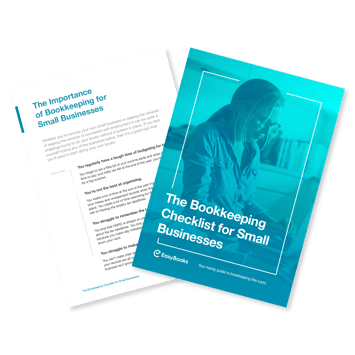No matter the size of a business, bookkeeping is essential. Some people view it as a chore, but it doesn’t need to be such a headache. With the right knowledge and resources, bookkeeping can be straightforward. By separating your finances, doing your research and going digital, it can be made as easy as you like.
So, when it comes to doing the books, be sure to remember these five easy tips to help you along the way.
- Separate Your Business and Personal Finances
- Record Expenses As Soon As You Pay Them
- Financially Plan for the Future to Avoid Surprises
- A Little Knowledge Goes A Long Way
- Utilise the Latest Technology
1. Separate Your Business and Personal Finances
Trawling through accounts to record expenses can be time-consuming enough as it is, never mind having to look through your personal transactions too. Which is why if you haven’t already and you’re still running your business from your personal account, you should split your finances to see the best results.
By separating your accounts, you can take control of the finances and make your life a lot easier.
In addition to this, you're also minimising the chances of any mistakes creeping in there. For example, you may include an expense that was personal as opposed to business.
By keeping them separate, you’ll have accurate financial reports that give a true reflection of your business’ position. So, if you’ve been putting off making the switch and focusing on other business areas, it’s time to split your accounts and soothe a potential bookkeeping headache.
2. Record Expenses As Soon As You Pay Them
We'd strongly advise that you keep on top of each expense as soon as it's been made. It's easy to let these build up and log them all at the end of the week... but the end of the week soon becomes the end of the month, and then the end of the quarter. And then it's a massive task.
We’d strongly advise that you keep on top of each expense as soon as it’s been made.
By staying on top of books and recording everything, companies like yours will always be in a position where you can produce a detailed and accurate finance report. As the business owner, you’re always interested in what position the business is in and this will help you gain a better understanding.
3. Financially Plan for the Future to Avoid Surprises
One common mistake that many businesses do is forget to plan for the future with their finances. Then, once the tax deadline dates arise, businesses are suddenly hit with a big bill. Or, even just leave them short for the remainder of the month.
Plus, it’s not just the tax deadline dates that business owners put off that catch them out. Outstanding invoices or last-minute expenses can catch many small businesses out when it comes to finalising their books ready for tax reporting.
That’s why businesses should always financially plan for the future. One best practice of doing so is buying a calendar and jotting down all the important dates throughout the financial year. That way, businesses are always aware of upcoming outgoings and you can plan adequately for them.
The last thing that any business owner wants is to frantically have to scratch around for cash when the big tax deadline dates come. So, by planning future finance throughout the year and putting money aside each month, the impact won’t be as hard on their business.
In addition, by acting proactively, business owners are implementing a far more sustainable and healthy way of operating for their businesses.
4. A Little Knowledge Goes A Long Way
Research doesn’t have to be long hours of hard studying either; it can be something as simple as reading this blog to further your knowledge.
There are plenty of resources published by HMRC that include online workshops, blogs and videos that all provide more details on how businesses can effectively do their books. After all, knowledge is power and the more you know, the easier it’ll become.
5. Utilise the Latest Technology
Long gone are the days when businesses manage all of their receipts in spreadsheets. It can now all be accomplished via apps. Bookkeeping is made so much easier with a full arsenal of sophisticated tools and online resources available.
One tool that can be very helpful is a user-friendly app. Companies can log all expenses in one place and keep track of things with different dashboards. This allows them to see a quick and easy overview of business finances.
Making Tax Digital (MTD) switchover was introduced in April 2019. This switch requires businesses to submit their tax returns digitally, so in order to cope with the switch, implementing the latest technology and innovation is a great place to start.
By following these tips above, bookkeeping will be a breeze and the worry of missing vital deadlines will be a thing of the past.
Make Bookkeeping Simple with Our Checklist
As we mentioned earlier, bookkeeping can be as simple as you want to make it. And that’s exactly what we’ve done with our handy checklist. It covers everything you need to consider in order to carry out your bookkeeping like a pro.
From helpful advice on how to stay efficient to apps and tools recommendations, it covers everything you need to know. Download it for free below.







